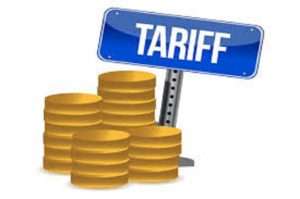The Volokh Conspiracy
Mostly law professors | Sometimes contrarian | Often libertarian | Always independent
Today's Federal Circuit Oral Argument in Our Tariff Case
Outcomes are hard to predict. But the judges seemed skeptical of the administration's claim that the president has virtually unlimited power to impose tariffs.

Today, the en banc US Court of Appeals for the Federal Circuit hear oral arguments in VOS Selections, Inc. v. Trump, the case challenging Trump's massive "Liberation Day" tariffs brought by the Liberty Justice Center and myself on behalf of five small businesses seriously harmed by the tariffs. You can listen to the argument here. Leading appellate litigator and Georgetown law Prof. Neal Katyal argued for us.
The case is consolidated with a similar one brought by twelve state governments, led by Oregon. We are defending a unanimous ruling in our favor by the US Court of International Trade, which held that the International Emergency Economic Powers Act of 1977 (IEEPA) does not grant the president anything approaching unlimited tariff authority, and if it did it would be an unconstitutional delegation of legislative power to the executive.
It is difficult to predict case outcomes based on oral arguments, particularly one with eleven judges that have a diversity of views and interests. Still, I can make a few tentative observations.
First, there seems little, if any, support for the idea that IEEPA grants the president unlimited tariff authority of the kind the administration claims. Multiple judges expressed skepticism that the law gives him the authority to rewrite the tariff schedule or to claim "unbounded authority." Several judges emphasized, as Judge Reyna noted, that "IEEPA doesn't even mention the word tariffs." From the beginning of this litigation, we have emphasized that IEEPA delegates authority to "regulate" importation, but regulation is distinct from taxation.
Even if IEEPA does allow some tariff authority, as the predecessor court to Federal Circuit ruled in United States v. Yoshida International Inc. (1975), with respect to the Trading with the Enemy Act (predecessor statute for IEEPA), it doesn't follow that authority is unlimited. Yoshida held it was not endorsing unlimited tariff authority. It emphasized that the Nixon tariffs were linked to the preexisting tariff schedule set by Congress, and that "[t]he declaration of a national emergency is not a talisman enabling the President to rewrite the tariff schedules." It even noted that to "sanction the exercise of an unlimited [executive] power" to impose tariffs "would be to strike a blow to our Constitution." A number of judges noted today that, if Yoshida applies to IEEPA (thereby authorizing some tariffs), so too do its limitations on the scope of permissible tariff authority.
Some judges also suggested that unconstrained tariff authority would run afoul of the major questions doctrine and constitutional constraints on delegation of legislative power to the executive. The CIT based its ruling in part on these considerations.
Even if IEEPA does allow the use of tariffs, the law can only be invoked in the event of an "emergency" that poses an "unusual and extraordinary threat" to the US economy and national security. Those judges who raised this issue seemed skeptical of claims that what qualifies and an "unusual and extraordinary threat" is left to the unreviewable discretion of the president. Otherwise, IEEPA (assuming it allows tariffs at all) would be a blank check for the president, thereby exacerbating major questions and nondelegation problems.
There is nothing unusual or extraordinary about trade deficits, the supposed threat targeted by the Liberation Day tariffs. We have had them for decades, and today's deficits are well in line with historical norms.
A number of judges raised an issue that was given little consideration by the lower court, and in briefing by the parties: even if trade deficits are not an "unusual and extraordinary threat," perhaps some of their supposed consequences do. Those possible effects include damage to US manufacturing, decline of the defense industrial base or the like.
Claims that trade damages US manufacturing and defense industries are - like trade deficits - far from unusual. Protectionists have advanced such arguments for decades. Far from atrophying or "hollowing out," US manufacturing output has actually grown in recent decades, nearly doubling since 1997. While it has declined as a percentage of GDP, that's largely because other industries (such as services) have grown even more. Perhaps we should have still more manufacturing. But there is nothing "unusual and extraordinary" about its current level. Whatever danger trade deficits pose to manufacturing or defense is not an unusual and extraordinary threat, but a normal policy issue that cannot be addressed through a statute limited to emergency situations. Moreover, as the amicus brief by leading economists points out, trade deficits, as such do not cause a decline in manufacturing.
Finally, it is worth noting that IEEPA only authorizes measures that "deal with" the emergency and unusual and extraordinary threat that justifies its invocation. Trump's imposition of 10% or higher tariffs on virtually every nation in the world goes far beyond merely targeting imports that might plausibly be said to undermine manufacturing or defense.
In sum, it is hard to predict what exactly the Federal Circuit will do here. But I am tentatively optimistic that the court will at least reject claims that IEEPA gives the president virtually unlimited, unreviewable tariff authority.


Show Comments (49)